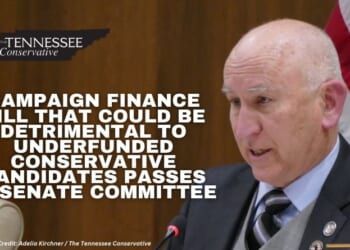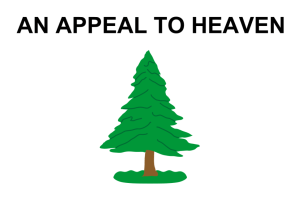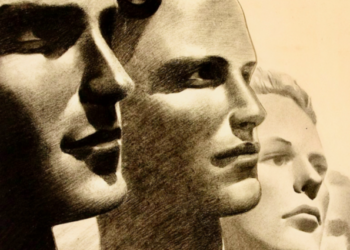AMONG my regular weekend destinations as a young Lancastrian was Nelson market. This was in three sections – the Market Hall, an imposing building with two cafes, open from Monday to Saturday except for Tuesday afternoons; Under the Grand, a few stalls in the basement of a cinema, keeping similar hours; and Lambert’s Open Market, which was in fact under a rickety corrugated-iron roof and operated on Wednesdays, Fridays and Saturdays.
During the week I had to go shopping for my grandparents but Saturdays were my own. After a leisurely lunch with my father of pork pie, sausage roll and a cream meringue from Oddie’s bakery (my mother was away, taking my sister to dancing class in Bury), I would repair to the Market Hall to see if the book stall had anything new. If in funds, I would invest in a mug of Horlicks and then cross the street to the open market. First port of call would be Len’s Records to examine the used singles rack (ex-jukebox discs were two bob). I once heard a customer ask furtively for a copy of ‘Gee Tay Me Moy Non Pluss’ which Len handed over without demur. This was Je t’Aime, Moi Non Plus, the controversial record by Jane Birkin and Serge Gainsbourg, or Jane Firkin and Serge Trousers as Willie Rushton once referred to them.
On to Ernie’s Second-Hand Stall, from where I assembled a collection of the annual International Football Book for Boys by (Tony) Stratton Smith, a journalist who went on to found Charisma Records. This was a mixture of player profiles, match reports (the 1960 edition mentioned a promising England schoolboy star named David Pleat who’d scored a hat-trick against Scotland) and footie fiction.
My favourite story was The Trouble With Catchpenny, about a small-town lad who kicks a tennis ball against the wall on his way to school until he becomes so skilful that he is talent-spotted by a major side. After leaving school Albert Catchpenny moves to the big city and makes a promising debut but soon his form deteriorates dramatically. He is sent home, where he realises that what he has been missing is his practice with a tennis ball. After a couple of weeks of hoofing it against the wall his confidence is restored and he goes back to his club, where he wows one and all. From then on, all the players are ordered to take tennis balls on the way to work and Albert goes on to play for England.
I took this tale so much to heart that I would spend hours on the back street, kicking a tennis ball at the rough stone walls and controlling the unpredictable rebounds. I got quite good at this but was sadly pretty crap with a proper-sized football on a full-sized pitch, mainly because I was fat, slow and lazy to boot.
Where was I? Oh yes.
Among the stalls under the Grand Cinema, one sold cheese, another boasted an impressive array of biscuits and another had a display of second-hand paperbacks and Superman comics (I later discovered that its major business was mucky books).
Back to the Open Market, then, to a stall named Tony’s although it was run by a jolly middle-aged Mancunian called Percy, known universally as Im Wit Fez (translation: ‘him with the fez’). For most of the time this was a quiet business selling household goods. Come 3pm Saturday, however, it was showtime. Percy would cover his shiny pate with a fez which had five-pound notes all the way round, attached by an elastic band. This seemed like incredible ostentation when it would take many of his customers a month to earn so much.
Crowds would gather six-deep around three sides of the stall as Percy began his performance. He’d produce some exotic item which he would claim cost ‘three pound in Arrods’, wherever that was. ‘But I’m not gonna charge you that.’
For the next couple of minutes he would reduce the price by stages, almost always concluding with: ‘I’ll not charge you five bob, four, not even three . . . ’alf a crown!’
By this time the mob were fighting each other to buy the product, several dozen examples of which had been stored under the counter. When all had been satisfied, the process would begin again. I have to admit that I too succumbed to the general hysteria when Percy reduced a giant bottle of detergent from seven quid to two-and-sixpence. I lugged it home in triumph and pantingly presented it to my mum as the bargain of the century. ‘But Alan,’ she said. ‘This is for an automatic carpet cleaner. And we haven’t got one.’
One late afternoon as the crowd around Percy was growing thin, I found myself next to a scrawny chap with bumfluff and BO. He kept repeating in a tiny voice: ‘A first-aid kit, a first-aid kit.’ When neither Percy nor his female assistant heard him, he started quietly effing and blinding. To put him out of his misery, I asked the woman: ‘Can this chap have a first-aid kit?’ which she duly supplied and he paid for. He rewarded me with the most venomous look I have ever seen as he shuffled away.
The Market Hall burned down soon afterwards while the Open Market was replaced by a soulless affair which was part of the appalling Arndale redevelopment that destroyed the town centre.
Footnote: A Daily Mail reporter once described King Hassan of Morocco as wearing ‘a Tommy Cooper-style fez’.
Songs for my funeral (2)
As I said at the end of a previous column, in which I nominated Fairport Convention’s peerless Who Knows Where The Time Goes, written and sung by Sandy Denny, I hope it will be a good while before my funeral comes around. When it does, however, I trust the sparse gathering of mourners will be moved by my next choice – Northern Sky, by Nick Drake, about whom I wrote here, here and here.
I never felt magic crazy as this
I never saw moons, knew the meaning of the sea
I never held emotion in the palm of my hand
Or felt sweet breezes in the top of a tree
But now you’re here
Brighten my northern sky
This sublime song, Drake’s finest, comes from his second album Bryter Later, released in 1971. It features John Cale on piano, organ and celeste, while the Velvet Underground founder member also assisted Joe Boyd with the production, creating an ethereal, magical atmosphere.
I have read that Drake wrote it while staying with John and Beverley Martyn in Brighton. I prefer to imagine that it might have been inspired by a visit to the Ribble Valley, where we have made our happy home in later life and where my lovely missus continues to brighten my northern sky.
Old jokes’ home
Crime in multi-storey car parks. That is wrong on so many levels.
A PS from PG
It is bad to be trapped in a den of slavering aunts, lashing their tails and glaring at you out of their red eyes.
PG Wodehouse: The Mating Season










